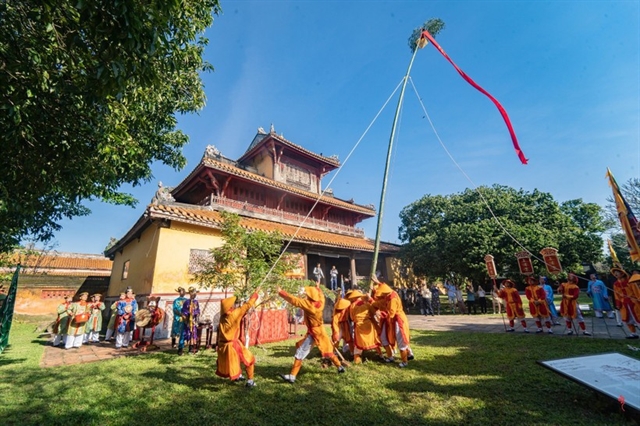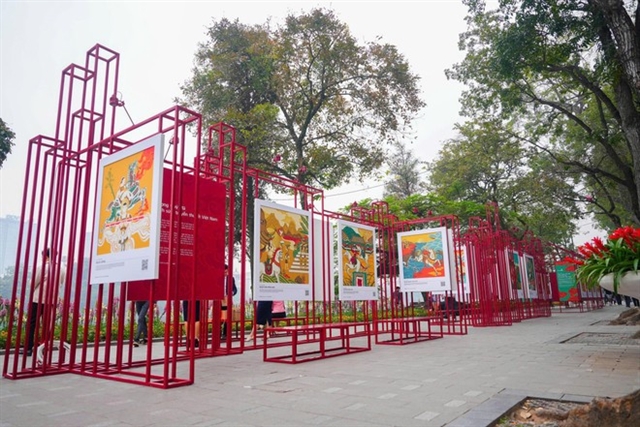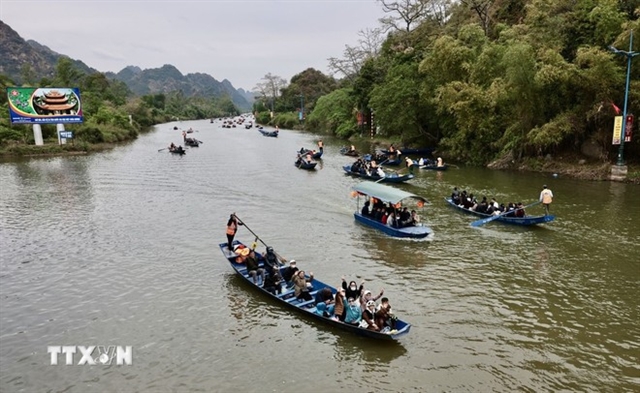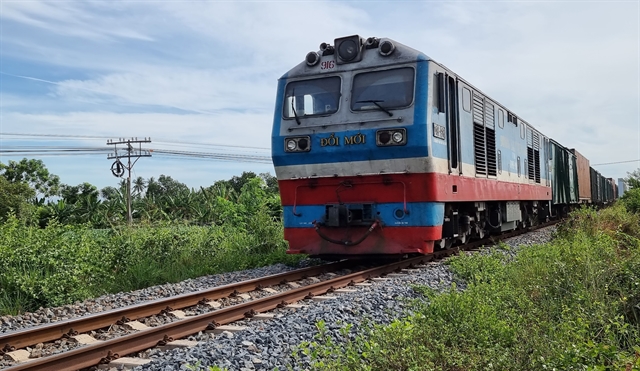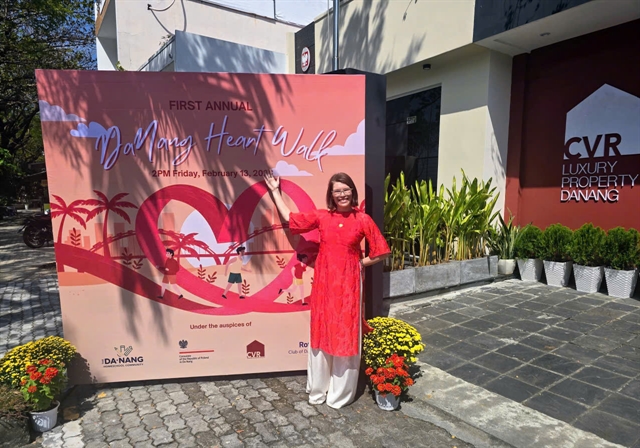 Society
Society

The lives of ethnic minority people in the central province of Quảng Bình’s Minh Hóa District have changed thanks to the care of soldiers over the past 10 years.
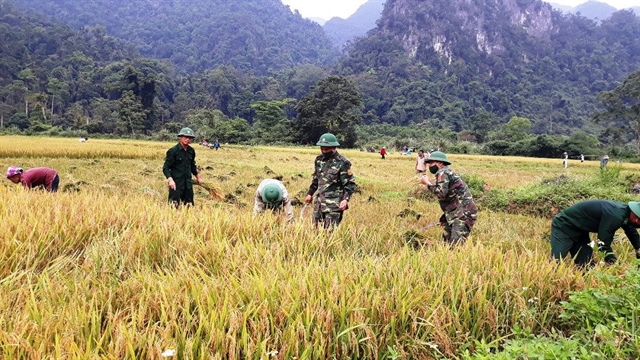
|
| Soldiers from Cà Xèng Border Post help Rục ethnic people in central province of Quảng Bình harvest rice. Photo baotainguyenmoitruong.vn |
QUẢNG BÌNH — The lives of ethnic minority people in the central province of Quảng Bình’s Minh Hóa District have changed thanks to the care of soldiers over the past 10 years.
In early May, a bustling atmosphere filled Rục Village as harvest season began. Every person has their own duty. Elderly people use sickles to cut the rice while youths carry rice to the field edge. Border guards help residents with the threshing machine and then pack rice into bags which are driven home on motorbikes.
Nguyễn Trung Chính, a political officer at Cà Xèng Border Post, said that after seeing local residents faced difficulties in daily life, they were determined to help them.
“Wet cultivation is one of the models that has really changed the perception of the people.”
Cà Xèng Border Post under Quảng Bình Border Guards supervises two disadvantaged communes of Thượng Hóa and Hóa Sơn with a total population of 2,522.
Of these, 40 per cent are ethnic minorities, mostly Chứt, Rục and Sách ethnic groups.
Due to limited education and outdated customs, the living standards of local residents are low.
Cao Xuân Long, head of Mò O Ồ Ồ village in Thượng Hóa Commune said in the past, ethnic minority people in the region relied on the forest and State assistance.
They didn’t know how to cultivate wet rice, but now they can do it with support from border guards.
Bringing wet rice to Rục ethnic people was a "revolution" which helped people approach new production methods to improve their lives, he said.
Now, they can feed themselves and no longer depend on the Government’s monthly rice support.
“Local residents have access to the electricity grid, paved roads, community houses and a playground for fun.
“Border guards encouraged disadvantaged students not to drop out of school by donating school equipment and money for them,” he said.
Since 2010, soldiers from Cà Xèng Border Post have travelled through the forest, seeking water and plants to improve the lives of Rục people.
The project of planting wet rice at the foot of Rục Lan mountain has been trialled for the first time.
To implement the project, border guard soldiers had to do all the tasks from mobilising people to instructing them on how to prepare rice breeds, sow and then harvest, according to Chính.
Nearly 10ha of forest which was once abandoned has been replaced by grainy rice fields with an average rice yield of 4 tonnes per hectare.
In addition, to ensure local residents have enough food, Cà Xèng Border Post has supported children from poor families with schooling.
The post has also worked with local authorities on planting more trees to cover barren hills and building concrete roads. Soldiers have offered health check-ups and provided free medicine for local residents.
“There were times we wanted to give up our duty due to extreme climate conditions, water shortages and the poor knowledge of people about wet rice,” recalled Chính.
Soldiers had to visit households, give them advice and gifts as encouragement.
But the situation is now different as people know how to cultivate wet rice, he said, adding that they no longer swapped rice for wine like in the past.
Border guards at the post have raised the awareness of local residents on COVID-19 prevention by encouraging them to clean their houses, wash their hands, wear masks and not take part in large gatherings.
Chính said that in the future, border guards would study more models to contribute to changing the lives of people. — VNS

